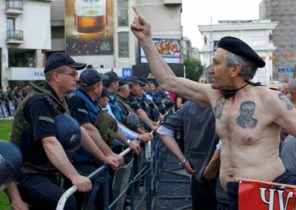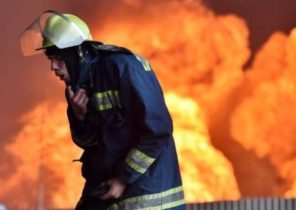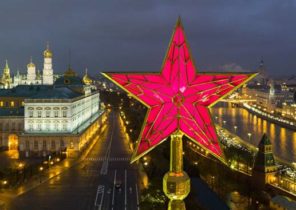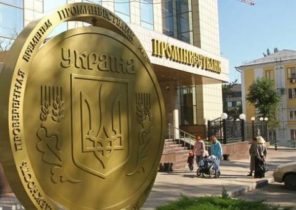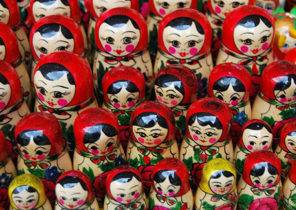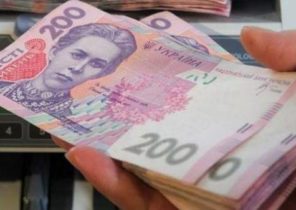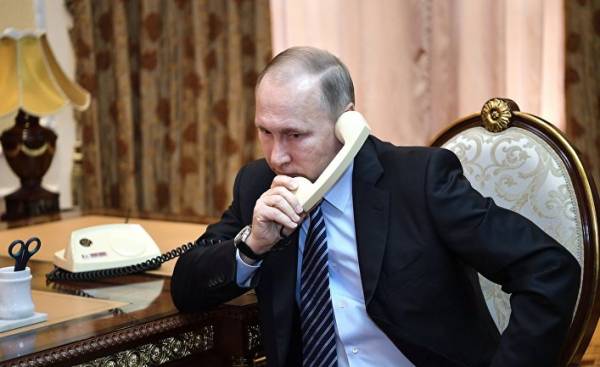
In October of last year the President of Russia had to cancel a visit to France due to disputes over Ukraine and Syria. Such a symbol can not please Vladimir Putin. Russian President arrives in France on may 29 the opening of the exhibition dedicated to Peter I, in Versailles. The invitation was voiced by Emmanuel Macron during a telephone conversation on may 18, in which the two heads of state, “despite the different positions on a number of issues, recalled the long and special relationship of the two countries”.
The exhibition is timed to the 300th anniversary of the opening of the Russian Embassy in Paris by the king, who wanted to cut for his country’s window to Europe. It is difficult to imagine a better opportunity for attempts to establish relationships that have been in recent years been undermined by the annexation of Crimea and destabilization of Eastern Ukraine and the participation of Russian armed forces in the fighting in Syria with the army of Bashar al-Assad.
A good start
In October 2016, Vladimir Putin canceled a visit to which including was timed to the opening of the Russian spiritual cultural center, when françois Hollande gave him to understand that everything is reduced to “a simple business trip with a focus on Syria.” Paris wanted thus to answer another Russian veto in the UN security Council and the continued bombing of rebel neighborhoods in the East of Aleppo. Whatever it was, the French authorities have not ceased to talk with Russia, including at the highest level, despite the difficult strategic situation.
In any case, the new President hopes for a successful start, even the Pro-Kremlin media spoke about it. “The idea is to answer the distrust of symbolism,” — said the Director of the French Institute of international relations Volume Gomar (Thomas Gomart). After a telephone conversation last week, the presidents agreed to continue their dialogue on Syria and Ukraine, and security in General.
The differences are, and very serious. Take the sanctions that the European Union has imposed in the fall of 2014 against Russia for its support of rebels in Eastern Ukraine. Condition their withdrawal was delivered to the full implementation of the signed in February, 2015 Minsk agreements. They were concluded under the aegis of françois Hollande and Angela Merkel and allowed to make peace and to build peace plan, which has remained on paper. In addition, they want to put pressure on the Syrian regime (they and Tehran are major backers), forcing him to take seriously the participation in the negotiations for finding a solution to the conflict.
The meeting will be held after the NATO summit on may 25 and the G7 meeting on may 26 and 27, allowing the French President to further strengthen its international status. In addition, the visit becomes an opportunity for Vladimir Putin, whose policy of rapprochement with Asia progressed, and relations with the US remain strained. “This trip to Paris coincides with the visit of 2001, when Putin called the European Union a natural partner of Russia,” — says Tom Gomar. But this is hardly enough to correct the damage done to the Kremlin’s position: “Loss of trust even more pronounced in Berlin, which considers the annexation of Crimea and Russian policies in Eastern Ukraine, a blow to the system of European security after 1991.”
Comments
Bernard Maillard 23/05/2017
Hidden relationships of the cold war with Russia is pointless and dangerous. We need to abandon militant atlantism and return to a balanced diplomacy between the US, Russia and China. After Breccia France remains the only European nuclear power and a member of the UN security Council. So it should be a leader in this process. It is a question of our freedom and world peace.
Maculan 23/05/2017
Apparently, the Makron competently played cards. Putin lost the French elections, where only tried to hurt (his only way of doing it in the West). We will behave politely and be willing to talk, but we won’t give in, especially on matters of principle.
Atalante 22/05/2017
Human rights violations in Russia and its spheres of influence, the invasion of Ukraine, support the criminal Bashar al-Assad, attempts to destabilize democracy and in particular Europe, the organization of the migration crisis, advocacy and support for fascist parties… Despite all this, we need to continue dialogue with the Russian people in the long term the change of government, which one day will happen…
